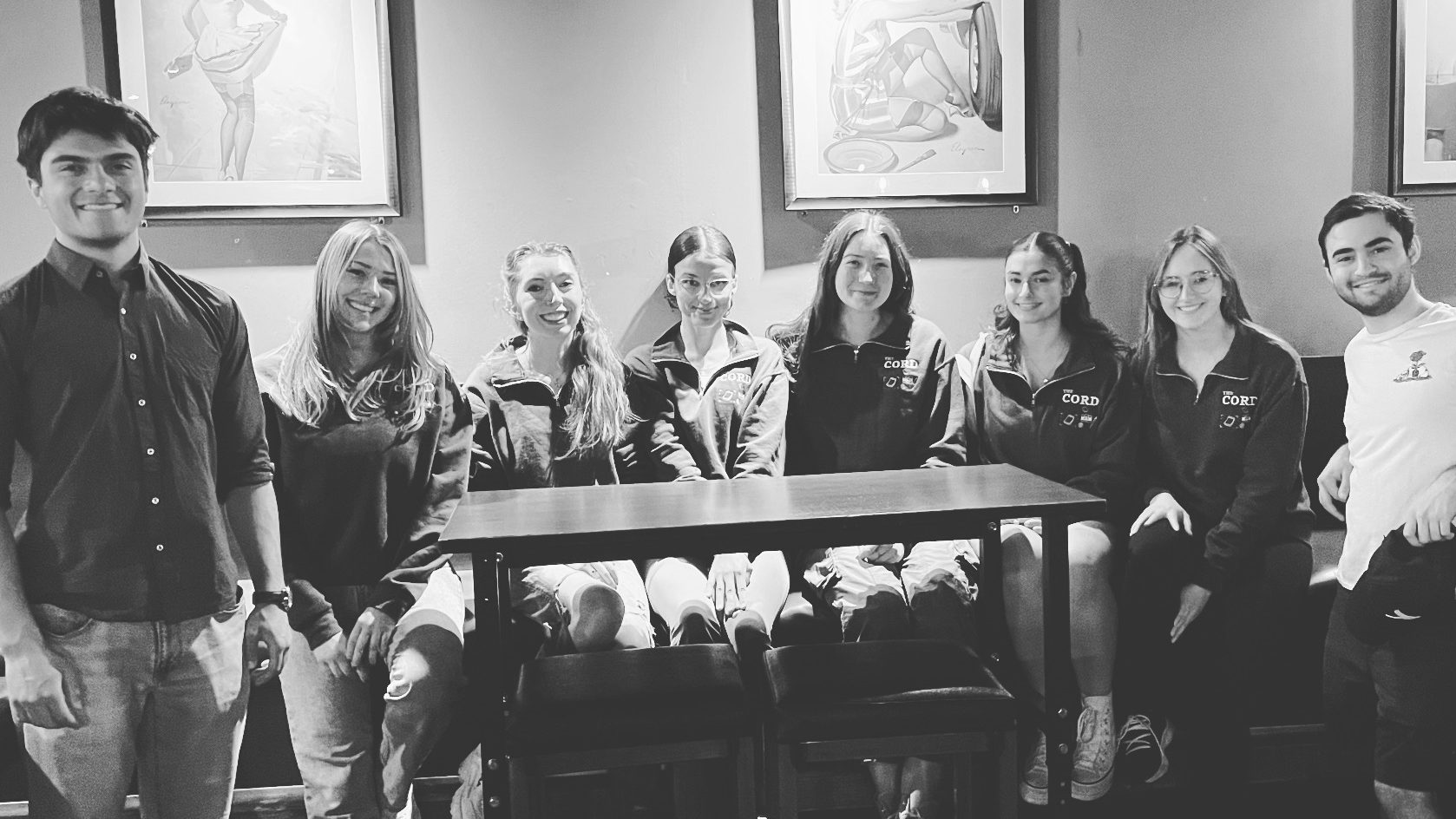University is a major milestone in the life of a young adult, a time of independence and exploration that is able to shape who a person becomes. With frosh week and a couple of first lectures behind us, there is a large focus on the experience of those first entering this stage, but senior students must also face a set of adjustments and pressures upon entering into their year.
By taking a look into the mindsets of students entering each separate stage, we see that there are some similar yet many different expectations that come as the progression through university influences the social and academic lifestyle of a student.
First-year business student Rhys Williams feels right at home in the Willison Hall Residence, enjoying the community lifestyle that some find at Wilfrid Laurier University right off the bat. “I definitely love the closeness of our floor, and I assume it’s like that on every floor,” he said. “Our floor is legitimately a family, we haven’t gone anywhere without each other, we stick together as a pack. Like this morning we were having lunch and talking about buying a house together.”
First-year psychology student Melissa Jennery has a slightly different take on the dormitory experience on an all-girl floor. “It’s totally opposite, everyone is cliquey. I thought we’d be one big happy family but I wasn’t expecting one week in for there to be such separation.”
Although, this didn’t stunt her enthusiasm when predicting Laurier’s overall social life. “Your mentality, who you are attracts people who are the same. So that’s why I’m excited to make friends with people who think the same way as me and believe in the same things I do,” said Jennery.
Williams’ impression of togetherness at Laurier can be seen in his initial view of the university’s social structure. “I expected there was going to be sub-categories of what you would call nerds and jocks but I was hanging out with someone who plays every sport at the same time as hanging out with someone who was talking about fixing the viruses on his computer… I kind of thought it would be like that because of high school.”
Although the social aspect of university can be the focus of first years, they are first and foremost students. “We’re here to expand our knowledge … absorb things as opposed to them so much teaching us things like it is in high school. I feel like we’ll just feed off of other people’s intelligence,” said Williams.
Jennery expresses her own expectations with, “I’m excited for what I’m going to learn but I’m also sort of scared that like one assignment is worth so much of your mark.”
Considering the work involved in being a student, second-year psychology student Tyler McKone said, “Academics are a lot higher on the priority list then last year.”
He feels that the new year will have him “realize that you have to do well to do what you want to do.”
Jordan Hamilton of second-year geography anticipated upcoming classes, saying, “It will become more specific; the profs expect more from you because you’ve already been through a year and know what to expect.”
The living situation of second year is also has its differences. “I like not having a don but rent is a pain in the ass, it’s hard to keep up with bills and stuff like it’s getting more real,” said Hamilton.
McKone, a don this year, added, “A lot of people are living without authority now being out of residence and in their own house so they sort of have to police themselves.”
Having your own first apartment or house is a big change that comes with second year, but there are some things that become more stable. “When you just meet everyone, you don’t really know anyone and now I’m with all my good friends,” said Hamilton.
However, she did add, “I feel like you can’t really meet that many new people, like you had that opportunity in first year.”
McKone, more hopeful of the second year social scene, commented, “The goal is to make existing relationships stronger while meeting new people at the same time.”
Third -year photonics student Shane Carr feels that there will be even more stability in his year. “For me, in past years I really wanted to meet people but I really wanted to do well in school… I tried to find that balance but it was chaos,” he said, “I think third year is the year you really strike your balance.”
Christina Muratore, a third-year psychology student agreed, suggesting, “I think third year isn’t so much of anything new, but your time to grow into what you know.” She added, “I’m always up to make new friends and meet new people but I’m not really seeking it, I feel like I have my group of friends at this point.”
Finding that balance between academics and a social life also leaves third year students considering to become more involved in the school. “I’m hoping to get more involved this year, because I haven’t been involved in the school at all. I’ve had my own social life and then school work to worry about” said Carr.
Muratore, regarding volunteerism, said, “I think third year gives you that transition from you belonging to the school to you being able to do something for the school.”
Kevin Campbell, a fourth-year English student, said on going into his final year, “You try and know what you want to do a lot more then everybody jumping at you and telling you what you should be doing.” In this way, things can actually become less rather than more stable as your progress. But that isn’t a bad thing.
Amy Berserkowitz, a fourth-year business student, admitted, “We’re supposed to choose a [specialization], I haven’t chosen one. I’m interested in too many random aspects of each major that I’m just taking a general degree.”
“I’m not really worried about what I want to do,” said Berserkowitz. “I’ll apply to jobs but I just feel like the only way I’m going to figure out what I want to do is by working in different jobs.” That perspective doesn’t retract from the extra pressure felt by fourth years when it comes to academics.
“It’s kind of similar to grade twelve in that you know you’re leaving soon and you’re a little more comfortable with the university,” said Campbell. “In that sense it’s a little less stressful but it is stressful I think in that the work that you do counts for a little more.”
He added, “You should probably be a little more on top of readings and, especially for fourth year courses, put your hand up more and contribute to the conversation since there’s only so many of you, 18 or 20 at the most.”
This difference in class sizes also means that “you see familiar faces in your classes as you start to grow with them in the same program,” Campbell said. The opportunity to meet new people still exists despite the impression of upper years – it just requires the right effort.
“It depends on the mindset you go in with, if you have a close group of friends and you’re not looking to meet more then you probably won’t,” said Berserkowitz.
Students can put too much pressure on themselves in this regard, but Berserkowitz concluded, “It makes me laugh when people say if you’re not going to meet people in university then where else are you going to meet them because I feel like people said that about high school too.”
With a new year in front of each student, the experience as it unfolds can change and shape their current impressions. Follow Staff Writer Colleen Connolly at thecord.ca as she reunites with the above students throughout the course of the academic year to find how much or little their expectations change.







